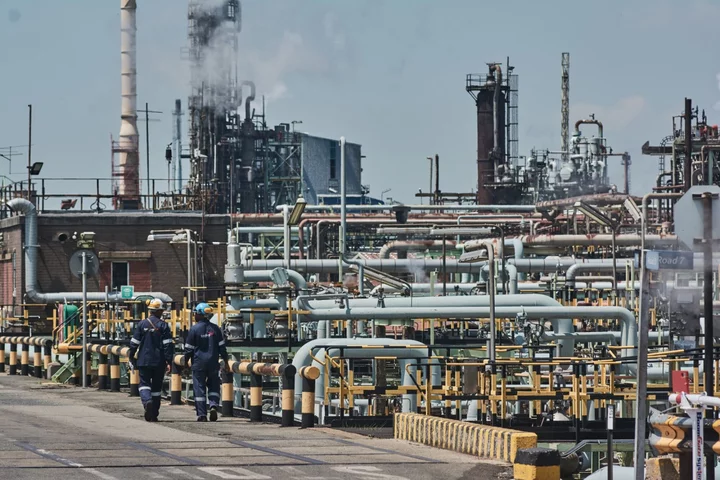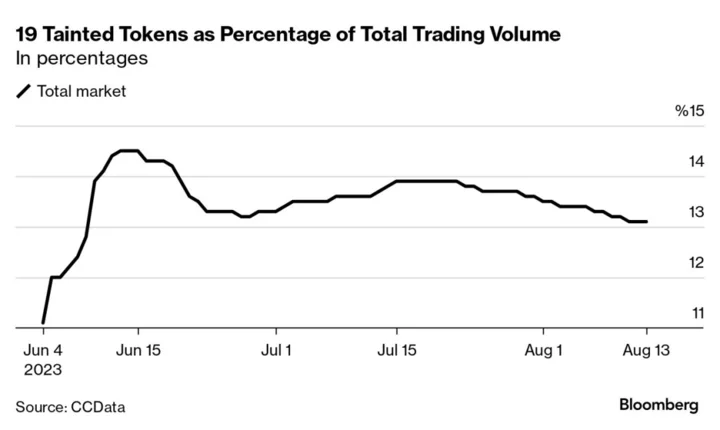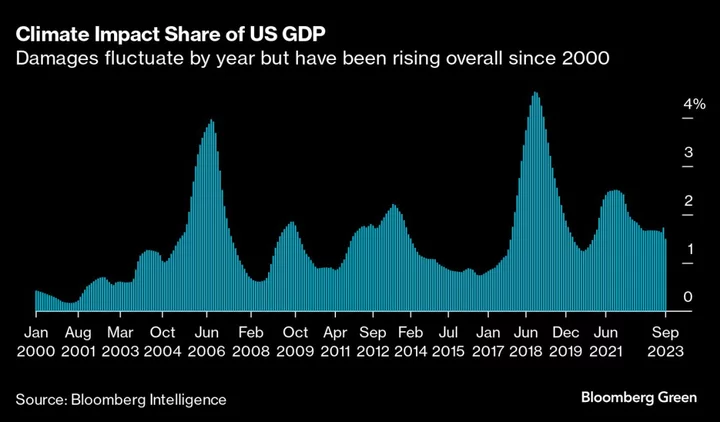The heat wave that’s gripped parts of the continent is set to give way to cooler weather in about a week’s time, but strongly above-average temperatures will linger in France and on the Iberian Peninsula until then.
Those regions will get as hot as the “upper 30s to lower 40s” over the next five days, but by the end of next weekend Madrid will be back at its normal level for this time of year, according to forecaster Maxar Technologies Inc. Orange heat warnings remained in place for parts of eastern France as Europe’s network of national meteorological services told people that “everyone is in danger, even those in good health” and warned them not to go out between 11am and 9pm.
It’s been a summer with plenty of extreme weather, ranging from wild fires to flooding and violent storms across the Northern Hemisphere. The world’s hottest month ever was recorded in July and the extreme weather increases the intensity of such events.
Wildfires have torn through parts of Greece, Spain and most recently the Spanish island Tenerife, while flash flooding has destroyed infrastructure in Norway and Serbia among other nations. Germany was also hit in the past few days.
On Wednesday evening, the German state of Hesse — which includes Frankfurt — registered over 25,000 lightning strikes within a one-hour period, according to meteorologists at public broadcaster Hessischer Rundfunk. That’s more than twice as many as were observed during the entire year of 2022. The heavy rain from the storm resulted in flooding at Frankfurt’s airport as well as many residential buildings.
--With assistance from Carolynn Look.









